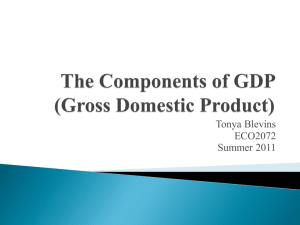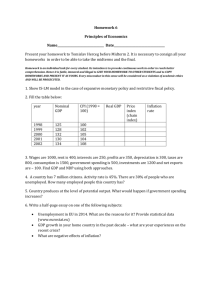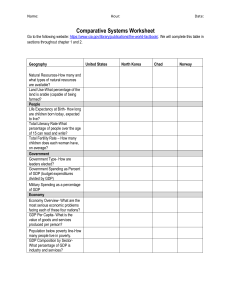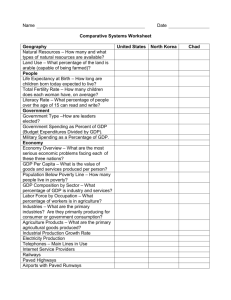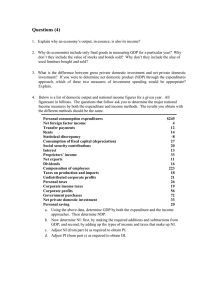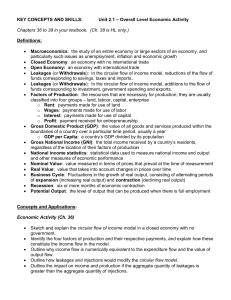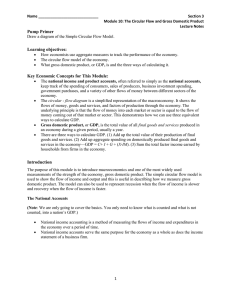Module 10: Circular Flow Model & GDP The National Accounts
advertisement
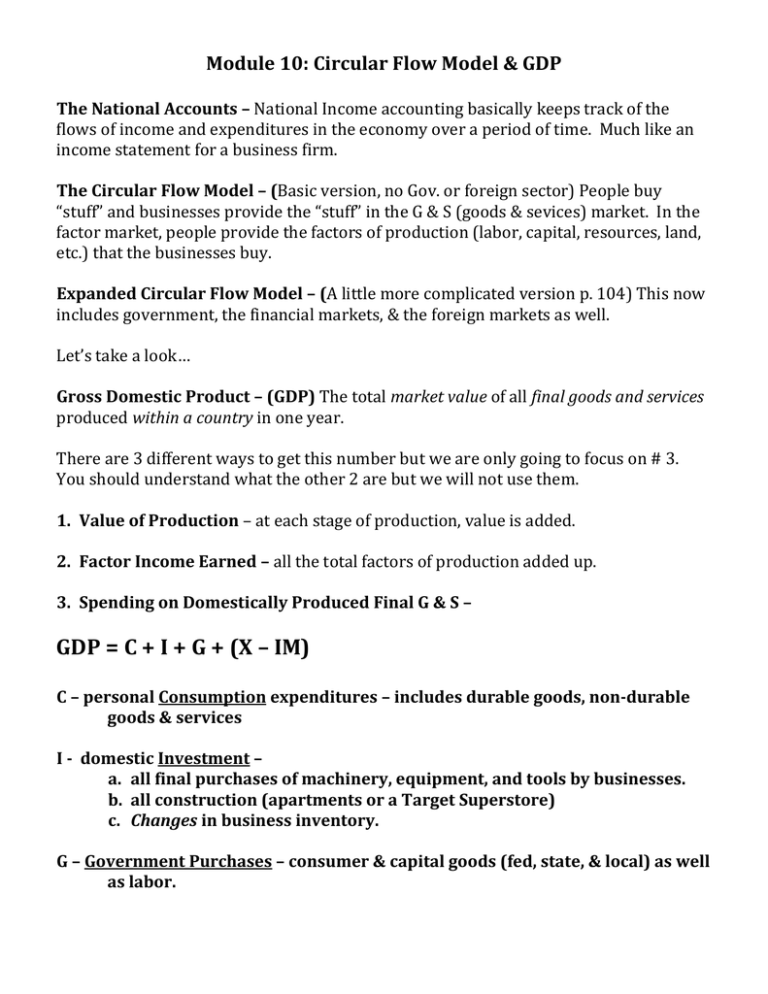
Module 10: Circular Flow Model & GDP The National Accounts – National Income accounting basically keeps track of the flows of income and expenditures in the economy over a period of time. Much like an income statement for a business firm. The Circular Flow Model – (Basic version, no Gov. or foreign sector) People buy “stuff” and businesses provide the “stuff” in the G & S (goods & sevices) market. In the factor market, people provide the factors of production (labor, capital, resources, land, etc.) that the businesses buy. Expanded Circular Flow Model – (A little more complicated version p. 104) This now includes government, the financial markets, & the foreign markets as well. Let’s take a look… Gross Domestic Product – (GDP) The total market value of all final goods and services produced within a country in one year. There are 3 different ways to get this number but we are only going to focus on # 3. You should understand what the other 2 are but we will not use them. 1. Value of Production – at each stage of production, value is added. 2. Factor Income Earned – all the total factors of production added up. 3. Spending on Domestically Produced Final G & S – GDP = C + I + G + (X – IM) C – personal Consumption expenditures – includes durable goods, non-durable goods & services I - domestic Investment – a. all final purchases of machinery, equipment, and tools by businesses. b. all construction (apartments or a Target Superstore) c. Changes in business inventory. G – Government Purchases – consumer & capital goods (fed, state, & local) as well as labor. (X – IM) Net Exports –(also known as Xn) exports minus imports (can be positive + or negative -) General rules: IN or OUT GDP includes only FINAL G &S GDP includes only products produced within a nation GDP includes only what is produced during that year not what is sold. GDP does not include 2nd hand goods GDP does not include purely financial transactions (ex: public transfer payments, Social Security or welfare benefits) (ex: private transfer payments, student allowances, alimony payments) (ex: sale of stocks and bonds represent a transfer of existing assets) but broker’s fee is included for services rendered!

